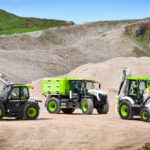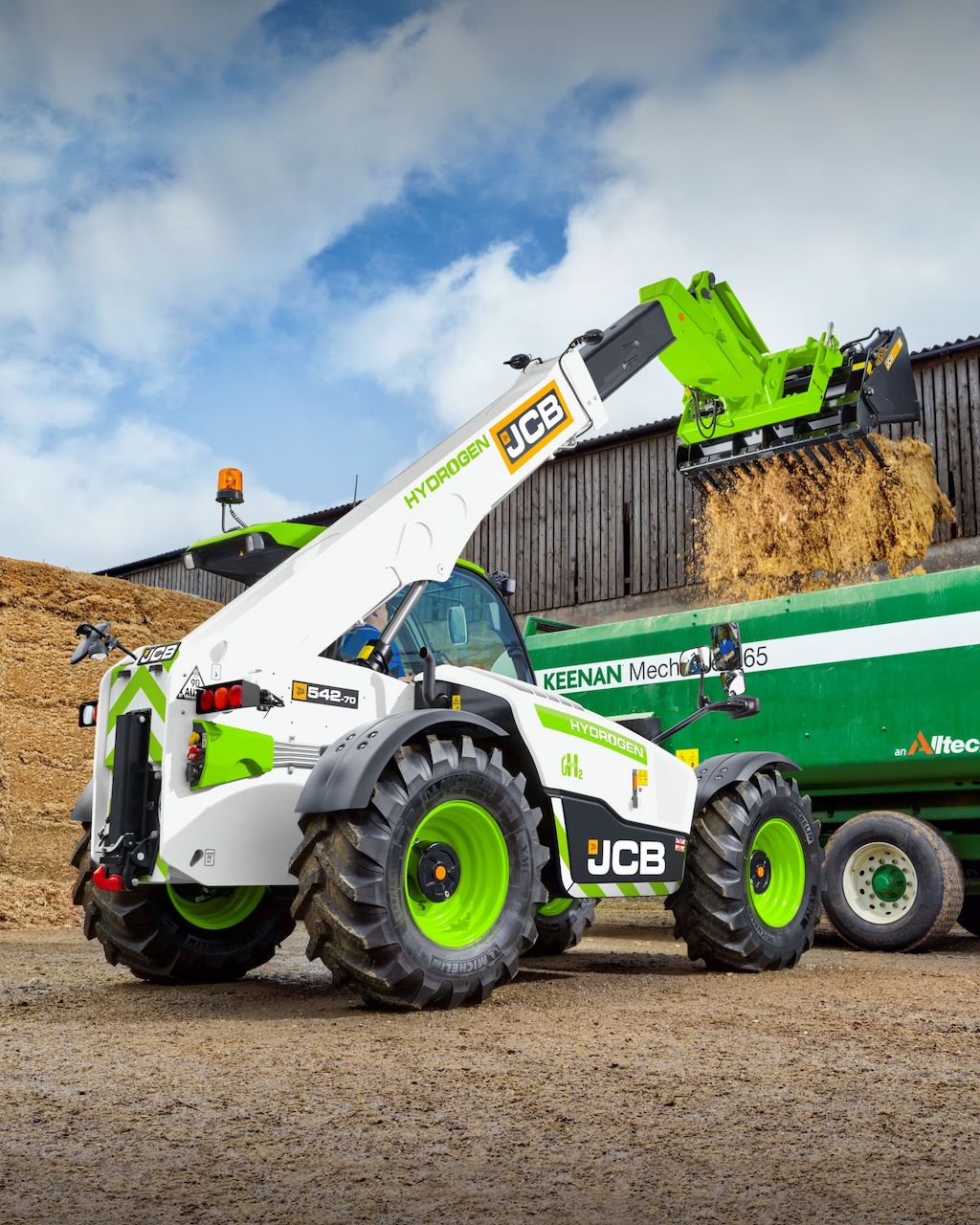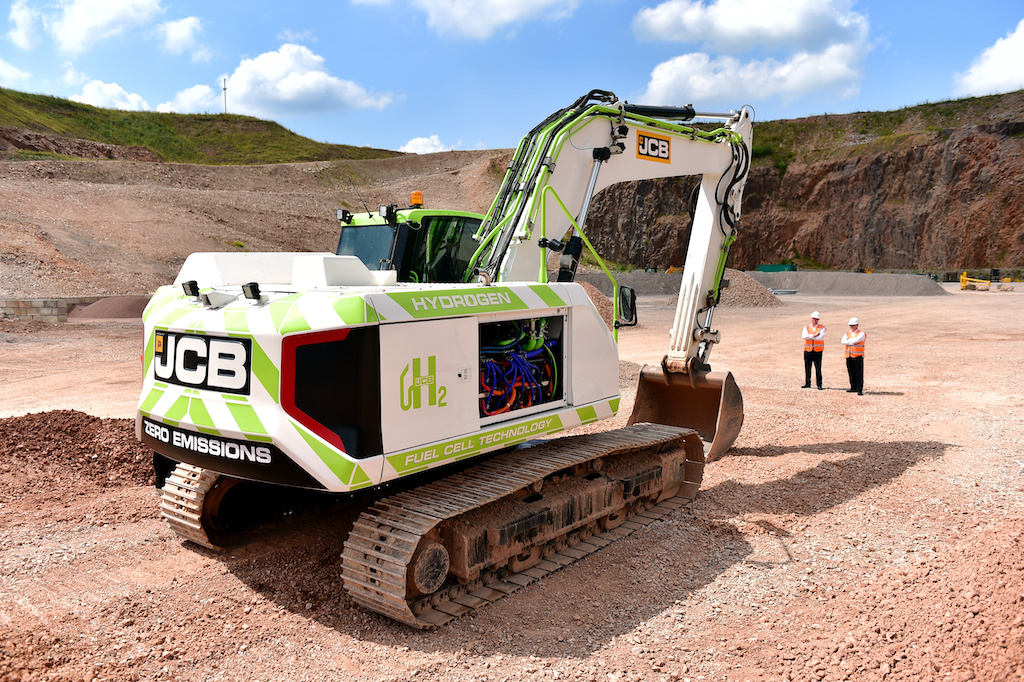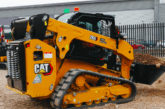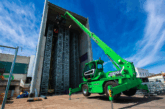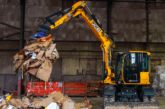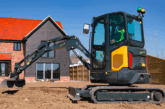A team of 100 engineers have been working on the project for more than a year and now JCB’s £100 million investment in super-efficient hydrogen engines has reached a significant milestone.
The 50th hydrogen combustion engine has now come off the production line as part of the development process. It is an achievement that has “secured JCB’s place in history as the first construction equipment company to develop a fully working combustion engine fuelled by hydrogen,” declares Lord Bamford.
JCB’s commitment to reducing emissions goes back almost 25 years and the latest diesel engines designed to comply with European Stage V regulations have already delivered a 97% reduction in NOx emissions since 1999 and a 98% reduction in particulates. In addition, thanks to a drive to reduce fuel consumption, the manufacturer’s machines use 50% less fuel on average than those produced more than a decade ago – delivering significant carbon dioxide reductions and saving customers money on fuel.
The company has also been at the forefront of electric technology development. While battery electric is suitable for smaller machines which do less hours and typically use less fuel, larger machines have a higher energy requirement. This would result in larger batteries, which take longer to charge, making them less suitable for machines which work multiple daily shifts and do not have the available downtime to recharge.
As a result, the Staffordshire firm has concentrated its development of electric machines on its compact range including the 525-60E Loadall telehandler and the 19C-1E mini excavator.
At the same time the search for future fuels has left no stone unturned and has included HVO, biogas, E-fuels, ammonia and hydrogen.
Lord Bamford said: “The majority of these alternative fuels require the production of hydrogen to make, so it makes perfect sense to use hydrogen in the first place because it is a clean zero carbon fuel which can be produced from renewable energy. Hydrogen also offers a potential solution to the challenge of batteries on larger machines; it allows for fast refuelling and is a mobile fuel solution, allowing fuel to be taken to the machine.”
As part of its hydrogen development, fuel cells have also been investigated, and in July 2020 the industry’s first ever hydrogen powered excavator was unveiled – a 20-tonne 220X.
For the time being, JCB has come to the conclusion that fuel cells are too expensive, too complicated and not robust enough for construction and agricultural equipment.
Lord Bamford said: “The unique combustion properties of hydrogen enable the hydrogen engine to deliver the same power, the same torque, and the same efficiency, but in a zero-carbon way. Hydrogen combustion engines also offer other significant benefits. By leveraging diesel engine technology and components, they do not require rare earth elements and critically, combustion technology is already well proven on construction and agricultural equipment. It is a technology which is cost effective, robust, reliable and well known throughout not just the construction and agricultural industry, but the whole world.”
JCB hydrogen engines are already powering prototype backhoe loaders and Loadall telescopic handlers and the company has recently unveiled its very own designed and built mobile refuelling bowser to take the fuel to the machines. The bowser has enough hydrogen to fill 16 hydrogen backhoe loaders and is able to be transported either on the back of a modified Fastrac tractor or on a trailer.

